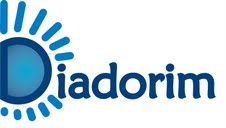Public service TV in the United Kingdom and its digital production’s economy of ethical and social values
DOI:
https://doi.org/10.13037/ci.vol18n38.4689Keywords:
Economy of ethical and social values. Public service broadcasting. Multiplatform production.Abstract
This article analyses the concept of “economy of ethical and social values” as it applies to independent production companies, which supply multiplatform content for public service TV in the United Kingdom. It is based on a research project in which we conducted over one hundred interviews with actors that integrate the country’s production ecology. We argue that the notion of “independence” represents a way to counter-balance their search for profits. At the same time, producers also need to search for projects in which they can make a difference in society.
Downloads
References
BENNETT, J. et al. Multiplatforming public service broadcasting: the economic and cultural role of UK
digital and TV independents. London: Royal Holloway, 2012.
BENNETT, J.; KERR, P. A 360 public service sector? The role of independent production in the UK’s
public service broadcasting landscape. In: LOWE, G. F.; STEEMERS, J. (Eds.). Regaining the
initiative for public service media. Gothenburg: Nordicom; University of Gothenburg Press, 2012.
p. 219-236. (Ripe).
BENNETT, J.; STRANGE, N. Linear legacies: managing multiplatform production process. In: JOHNSON,
D.; KOMPARE, D.; SANTO, A. (Eds.). Making media work: cultures of management in the entertainment industries. New York: New York University Press, 2014. p. 63-89.
CALDWELL, J. T. Worker blowback: user-generated, worker-generated and producer-generated content
within collapsing production workflows. In: BENNETT, J.; STRANGE, N. (Eds.). Television as
digital media. Durham, NC: Duke University Press: 2011. p. 283-310.
CHITTY, A. How multiplatform PSB stopped trying to change the world and grew up (but got smaller).
Critical Studies in Television, Thousand Oaks, v. 8, n. 1, p. 126-130, 2013. DOI: https://doi.org/10.7227/CST.8.2.12
FUCHS, C. Digital labour and Karl Marx. New York; Abingdon: Routledge: Taylor & Francis Group,
2014.
GREEN, J.; JENKINS, H. The moral economy of web 2.0: audience research and convergence culture.
In: HOLT, J.; PERREN, A. (Eds.). Media industries: history, theory, and method. Malden, MA;
Oxford: Wiley-Blackwell, 2009. p. 213-225.
HESMONDHALGH, D.; BAKER, S. Creative labour: media work in three cultural industries. London:
Routledge, 2011.
JENKINS, H. Fans, bloggers and gamers: exploring participatory culture. New York: New York University
Press, 2006.
JENKINS, H.; FORD, S.; GREEN, J. Spreadable media: creating value and meaning in a networked culture. New York: NYU Press, 2013. DOI: https://doi.org/10.1353/cj.2014.0021
KENNEDY, H. Net work: ethics and values in web design. Basingstoke: Palgrave MacMillan, 2012.
LEE, D. The ethics of insecurity: risk, individualization and value in British independent television production. Television & New Media, Thousand Oaks, v. 13, n. 6, p. 480-497, 2012. DOI: https://doi.org/10.1177/1527476411424419
MCROBBIE, A. Clubs to companies: notes on the decline of political culture in speeded up creative worlds.
Cultural Studies, Abingdon, v. 16, n. 4, p. 516-531, 2002. DOI: https://doi.org/10.1080/09502380210139098
ROSS, A. No-collar: the humane workplace and its hidden costs. Philadelphia: Temple University Press,
2004.
Downloads
Published
How to Cite
Issue
Section
License
Copyright (c) 2017 Andrea Medrado, James Bennett, Niki Strange

This work is licensed under a Creative Commons Attribution-NonCommercial-NoDerivatives 4.0 International License.
Conforme consta nas normas da revista, o envio de artigos e textos solicitando a apreciação com a finalidade de publicação na Comunicação & Inovação, configura a cessão de direitos autorais.
No caso de fotos e imagens, o autor deve providenciar documento que ateste a permissão em termos de direitos autorais.




